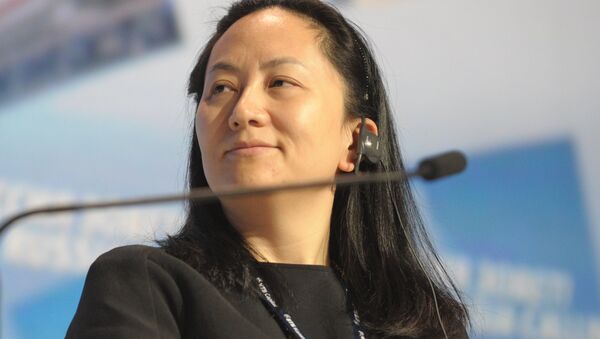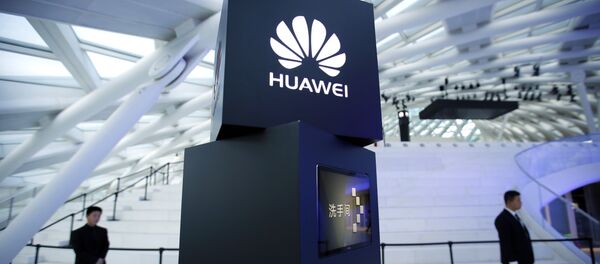The Chinese Foreign Ministry said Saturday that Beijing expressed opposition to Canada's decision on Meng Wanzhou extradition to the United States.
"The Chinese side has expressed its extreme discontent and decisive protest to the Canadian side due to its persistent promotion of the so-called judicial procedures on the extradition of Ms Meng Wanzhou. Beijing has already lodged stern representations [with Ottawa]", the ministry's spokesman, Lu Kang, said in a statement.
China's high-tech giant Huawei said a statement, issued by its lawyers on 2 March, that Canada's decision to initiate the extradition of the company's Chief Financial Officer, Meng Wanzhou, to the United States was disappointing.
"The allegations of the US side are politically-motivated. The US president [Donald Trump] has repeatedly said that if the case of Ms Meng Wanzhou helps reach a [trade] deal between the United States and China, he will intervene in this case. Despite that, the Canadian Justice Department still decided to issue the relevant order. We are very disappointed by these actions", the company said in a statement.
The telecoms giant noted that Meng's actions, considered as offences by the United States, were not offensive under the Canadian law. Thus, Canada's authorisation of extradition procedures violates the dual criminality principle — the main requirement for extradition, under which a person can be handed over for trial by one state to another if similar laws, which have been violated by the suspect, exist in both countries, according to Huawei.
"Ms Meng Wanzhou did nothing illegal. The United States abused judicial procedures by initiating criminal procedures and asking for her extradition", the company noted.
READ MORE: US Charges Huawei, Affiliates, CFO With Conspiracy, Stealing Trade Secrets
Meng, the daughter of the founder of Chinese telecoms giant, was arrested in Vancouver on 1 December 2018 at the United States' request, reportedly for failing to comply with US sanctions against Iran. The arrest was decried by Beijing, which demanded that Canadian authorities immediately release the Chinese national.
READ MORE: US Attack on Huawei Aims for ‘Unfair Competition Conditions,’ Not ‘Security’
Chinese-Canadian relations were further strained following the detention of two Canadian citizens, former diplomat Michael Kovrig and businessman Michael Spavor, in China shortly after Meng's arrest. While the detentions have been widely regarded as Beijing's retaliation for the arrest of the Huawei executive, Chinese authorities have denied the allegations, insisting that the two men posed a threat to national security.
READ MORE: Huawei Executive Arrest Shows US-China Trade War Far From Over — Pundit



